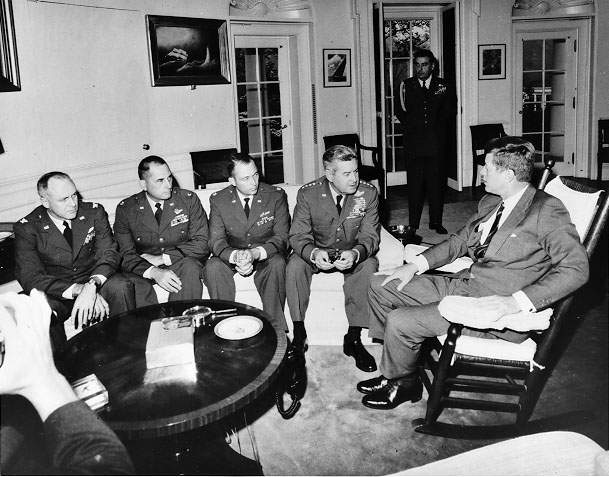
Retired Canadian diplomat talks foreign service, international diplomacy and spying on the Soviets
By Scott Strasser, May 24 2016 —
John Graham is a former Canadian diplomat whose career in foreign service spanned from 1960 until 1992. Graham’s years with Canada’s external affairs department saw him hold posts in the Dominican Republic, Guyana, Suriname, Haiti and other countries around the world. Graham notably assisted the CIA in Havana following the 1962 Cuban missile crisis, spying on Soviet military operations. He later penned his experiences in a memoir titled Whose Man in Havana? The Gauntlet had a chance to speak with Graham about his career in international diplomacy.
The Gauntlet: What influenced your book’s title?
John Graham: It’s a play on the comedy by Graham Greene, Our Man in Havana. I was assigned [to Havana] immediately after the missile crisis in 1962. The
CIA was concerned with whether the deal between the Soviet Union and the United States was being observed — that the ballistic missiles and the nuclear warheads in Cuba had been withdrawn. [The CIA] asked Canada if we would send someone to our embassy in Havana. Their job would be to monitor Soviet military movements and the military equipment they had on the island.
G: Did it ever occur to you just how actively involved you were in the Cold War?
Graham: You were very conscious that this was deep in the Cold War. This was the point in which the Cold War almost became a Hot War, which would have been a nuclear holocaust with maybe two million people dead. This was the biggest crisis of its kind. Monitoring what the Russians were doing and
trying to ensure they lived up to the agreement between Kennedy and Khrushchev was a worthwhile thing to do.
G: You witnessed several historic events in countries you were
stationed — the fallout of the Cuban missile crisis, the assassination of Rafael Trujillo and the Jonestown massacre in Guyana. Do any stand out?
Graham: They all stand out. I guess in a way the missile crisis does. That came as close as we’ve ever come to an enormous, virtually world-wide
disaster. When I was there, the worst of the crisis was over. But the tensions and uncertainties were still there.
G: Were there any aspects of a career in foreign service that surprised you?
Graham: Oh yeah, I think that happened to most of us. Unless your family has been in the foreign service, you’re not ever really prepared for the diversity of things you’ll have to do. You interact with the society and the richer the experience becomes. The more you see of that society, the better you become aware of its history, culture and art. You’d be surprised what you find, even in remote places.
G: What was the most rewarding part of your career?
Graham: I was the principal mediator for one of the worst election crises in Latin America in the Dominican Republic in 1994. Some very good people and I were able to defuse a
crisis that could have easily erupted into a civil war.
G: Do you have any advice for U of C students interested in pursuing a career in diplomacy?
Graham: It’s valuable to have some practical experience overseas. There’s a lot of homework that should be done by people contemplating this kind of career. Most of my colleagues were surprised by how much of it we enjoyed.
Edited for brevity and clarity
